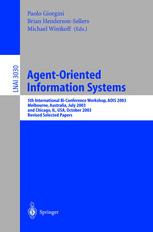

Most ebook files are in PDF format, so you can easily read them using various software such as Foxit Reader or directly on the Google Chrome browser.
Some ebook files are released by publishers in other formats such as .awz, .mobi, .epub, .fb2, etc. You may need to install specific software to read these formats on mobile/PC, such as Calibre.
Please read the tutorial at this link: https://ebookbell.com/faq
We offer FREE conversion to the popular formats you request; however, this may take some time. Therefore, right after payment, please email us, and we will try to provide the service as quickly as possible.
For some exceptional file formats or broken links (if any), please refrain from opening any disputes. Instead, email us first, and we will try to assist within a maximum of 6 hours.
EbookBell Team

4.0
66 reviewsThisproceedingsvolumeofthe5thAOISWorkshopisanopportunityforlooking back at ?ve years of organizing AOIS workshops. What did we achieve with the AOIS workshop series? Where were we ?ve years ago, where are we now? Did ourthemeimpactontheinformationsystems?eldinthewaythatwehadhoped for? AOIS workshops have taken place in Seattle, Heidelberg, Stockholm, Austin, Montr´ eal, Interlaken, Toronto, Bologna, Melbourne, and Chicago, always in c- junction with a major conference on either multiagent systems in arti?cial - telligence (AI/MAS) or information systems (IS). We have tried to innovate in holding these workshops as biconference events (each year AOIS held two wo- shop events, one at an AI/MAS conference and one at an IS conference), as well as using the AOIS web site as a medium for communication among researchers. So, certainly, we have reached a wide audience of researchers around the world from both the AI/MAS and IS communities. But did we also manage to build up a dedicated AOIS community? Five years ago, we wrote: “Agent concepts could fundamentally alter the nature of information systems of the future, and how we build them, much like structured analysis, ER modeling, and Object-Orientation has precipitated fundamental changes in IS practice. ” Of course, a period of ?ve years is too short for evaluating the success or failure of a new scienti?c paradigm. But still we may observe that while most IS conferences meanwhile list agents as one of their many preferred topics, agent-orientation is generally not considered to be a fundamental IS paradigm.